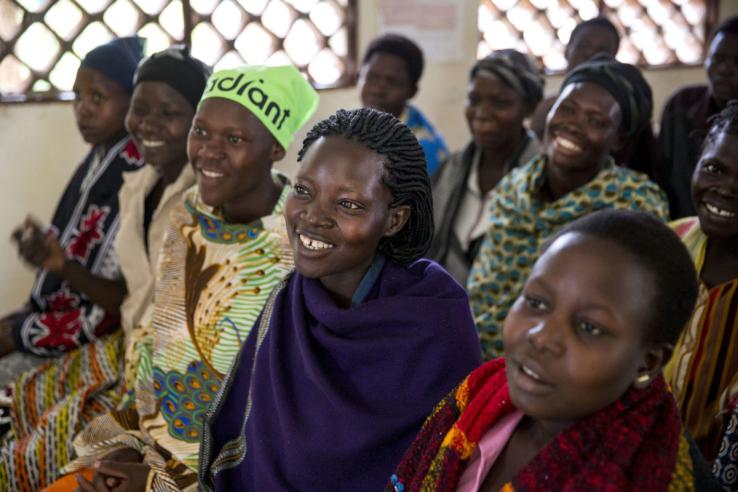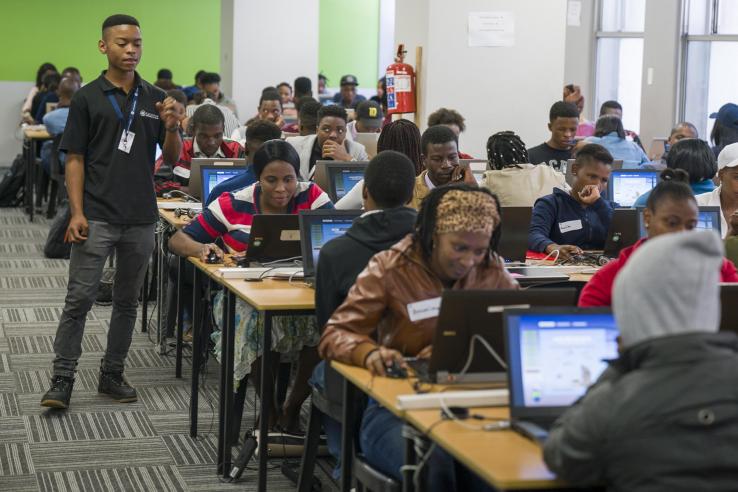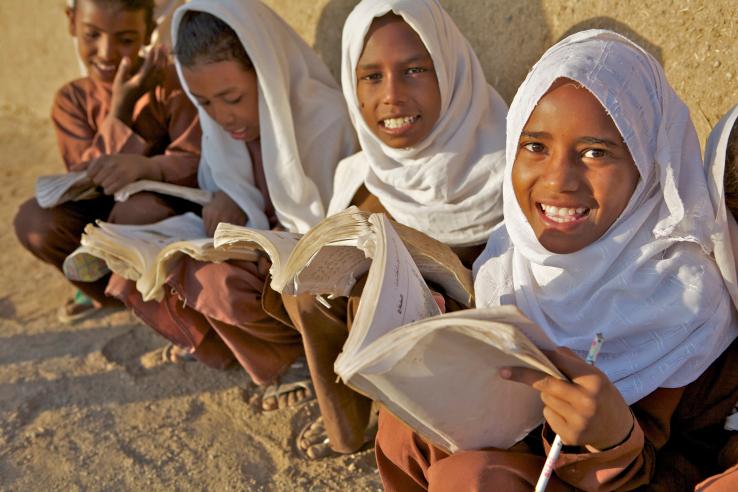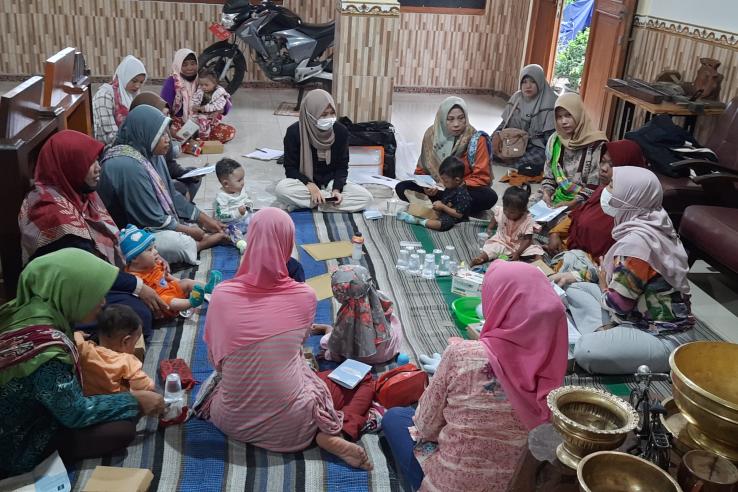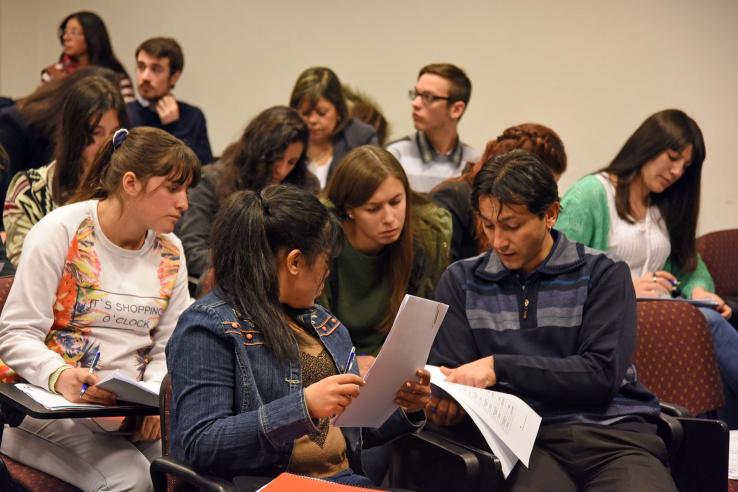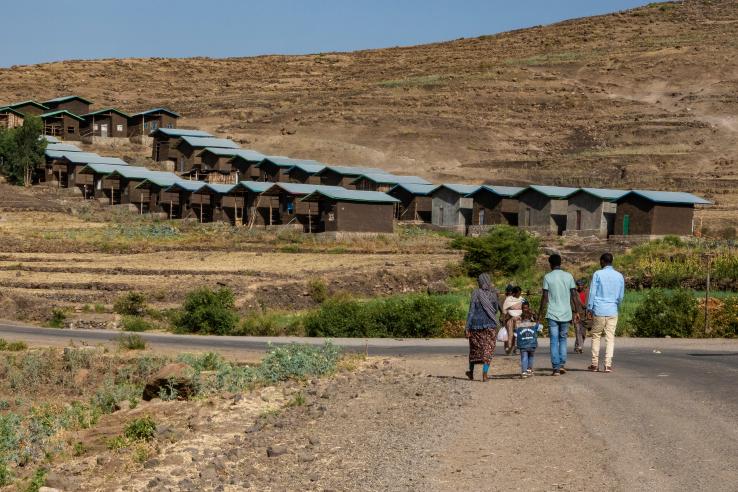Displaying 4621 - 4635 of 8489
Evaluation
An evaluation of a microenterprise assistance program, with and without involving male partners, found that it improved women’s economic outcomes, but that depended on the quality of women’s relationships with their intimate partners. While the program had no impact on IPV, involving male partners did improve relationship quality.
Evaluation
Researchers studied the effects of a university policy in South Africa to promote racial integration, by randomly allocating incoming students to roommates of a different race. The policy reduced negative racial stereotypes among white students, improved attitudes and behaviors towards members of other races, and improved academic performance among black students.
Evaluation
Researchers conducted a randomized evaluation to test the impact of introducing a pay-as-you-go car insurance contract, which reduces minimum purchase requirements, to uninsured drivers in California. Applicants who were offered this type of insurance were nearly twice as likely to purchase car insurance than those who were offered a traditional car insurance contract, but this impact faded over time.
Evaluation
Researchers conducted a randomized evaluation to test the impact of text message reminders on rates of failure to appear in court (FTA) among people who are unhoused and housed in rural Shasta County, California. The reminders reduced FTA rates for the housed population, but did not impact FTA rates for people experiencing homelessness.
Evaluation
In South Africa, researchers partnered with Harambee Youth Employment Accelerator to evaluate the impact of providing information about a job seeker’s skills on job seekers’ beliefs, search effort, and employment outcomes. Providing information to job seekers and prospective employers increased participants’ employment and earnings. Job seekers updated their beliefs and strategies for job search, and employers received information they valued.
Evaluation
Recent studies have shown that a psychology-based entrepreneurial mindset training can have promising effects on business outcomes. In Ecuador, researchers are evaluating whether these skills can be taught at scale and online by testing the effects of an entrepreneurial mindset training program on youth education and employment outcomes. They are also investigating if and how the effects change when the program is paired with mentoring.
Blog
Last year, J-PAL published a policy brief and implementation guide synthesizing evidence from sixteen randomized evaluations of life skills programs for adolescent girls. The findings show that such approaches can be particularly effective in boosting self-efficacy (confidence in achieving certain...
Blog
J-PAL Southeast Asia organized a research-to-policy showcase bringing together policymakers, researchers, civil society organizations (CSOs), development partners, and private sector to discuss innovations for strengthening the last-mile delivery of early childhood education and development (ECED)...
Research Paper
File: Research paper
Evaluation
Researchers evaluated the impact of cognitive behavioral therapy (CBT) and cash transfers on functional impairment (or difficulty performing daily tasks), depression, and food security among adults 55 and older living alone in Tamil Nadu, India. At a three-week follow-up, cash transfers improved participants’ reported ability to perform daily tasks and led to a small decline in depression, while neither CBT nor the combination of the two impacted these outcomes.
Evaluation
Researchers evaluated the impact of poverty reduction via an unconditional cash transfer to mothers on child neurodevelopment. Children in families that received a $333 monthly transfer displayed different brain activity patterns than children whose mothers received only $20 a month.
Evaluation
Researchers sent emails to schools posing as parents of students with randomly-varied characteristics to assess if schools responded differently to different types of students. The researchers found that on average both charter and traditional public schools were less likely to respond to students that were signaled as having disabilities, a behavior problem, or low prior academic achievement. The researchers also found that compared to traditional public schools, charter schools were less likely to respond to messages that signal the student has a disability.
Evaluation
Researchers partnered with the government of Uruguay to evaluate the impact of a national youth employment program. The program increased participants’ earnings and school enrollment during and up to two years after the program, suggesting that work-study programs may ease students’ school-to-work transition.
Evaluation
Researchers studied the impact of an in-school program to provide application assistance at schools where fewer than half of high school seniors typically enter college the following year. Application fee waivers combined with an online tool that provided customized college information boosted college application and enrollment rates. A less customized version that includes fee waivers increased application rates but not enrollment, and variations with no fee waivers had negligible or even negative effects on application rates and enrollment.
Evaluation
In low- to middle-income countries around the world, nearly one billion people lived in urban informal settlements as of 2018. Rapid urbanization in most large African cities has led to both more people and a higher proportion of people living in informal settlements over time. Researchers conducted a randomized evaluation to test the impact of winning the housing lottery on the demand for formal government housing, consumption, labor market outcomes, social networks, and community and public goods in Addis Ababa, Ethiopia. Winning the housing lottery increased demand for formal government housing: nearly 46 percent of participant households that win the lottery chose to move into their formal housing, indicating many prefer to live in government housing despite the high implicit cost that they pay to do so.
